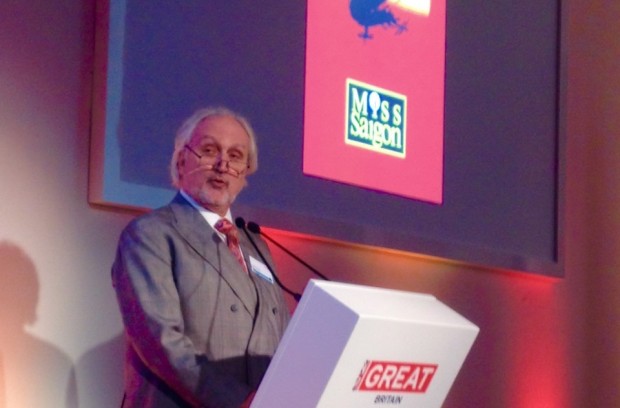
The UK’s £71 billion creative sector is one of Britain’s most important industries. Few have had more success in exporting creativity than Nick Allott who I caught up with at this month’s celebration of British commercial creativity – the GREAT Festival in Shanghai.
You’d be very wrong to dismiss this man as a mere cultural luvvie. As Managing Director at Cameron Mackintosh Ltd, he has played a key role in exporting musical theatre with global successes that Hollywood executives would kill for. To date, Phantom of the Opera has grossed over US$6 billion, earning double the takings of Avatar as the top-grossing film of all time.
As soon as we begin to talk, it’s clear that musical theatre isn't just Nick’s bread and butter. It's his passion. His lifeblood. We cover topics such as diversity in the arts, the role of government, how to encourage emerging talent, the power of culture to inspire and change lives. Here is a real statesman of the theatre world.
Jo Hawley: What are your current projects and priorities?
Nick Allott: We are a production company, West End theatre owners and licensing company. It’s an industry in which you can never stand still – and we don’t want to. Domestic projects include the refurbishment of Victoria Palace as part of the regeneration of that area of London and we are just acquiring and renovating the Ambassadors, which has an unusual, non-traditional stage. There is no other space like that in London.
We see huge potential in brining our shows – Phantom, Les Mis, Miss Saigon, Cats – to new markets and new generations. Overseas, we tend to do this in two different ways: touring the original show or working with local partners to adapt the show into the local language. Short-term runs of the English language versions are fine, but to have wide appeal, you really need each country to embrace the shows as their own. Over 25% of all Norwegians have been to see Les Mis in Norwegian. We are currently working on a Mandarin version of Phantom.
JH: What success have you had in this part of the world to date?
NA: Japan is our strongest market here and has been for some time. It’s been a great success. South Korea is doing well too where there is a good network of theatres and a huge amount of talent. Korean stars are now performing in the West End and are scooping up the awards.
China is a work in progress. We come across small, unlicensed performances of our shows, which at least show an appetite for them! Whilst there’s been money poured into wonderful new venues, more focus needs to be put on developing talent, investing in the next generation of theatre practitioners. The talent is here waiting to be unlocked.
JH: So what next for your Asian ambitions?
NA: In 2016, we are planning to bring Les Mis from Australia to Manila, Hong Kong, Singapore and China. In China we'll focus on Beijing and Shanghai of course, but we also want to come to the impressive Zaha Hadid designed Guangzhou opera house.
JH: You have worked closely with government including in your current role as a UK Business Ambassador. What more do you think the UK government should be doing to support our creative industries to export?
NA: It’s crucial for the UK to encourage other governments to invest in this sector. It's not just about building venues, but the software that goes in them: the production skills, the on-stage talent. This can start in schools. There are excellent programmes like “Junior Broadway” where schools get a kit to deliver their own productions adapted to the younger audience. This could work really well in China.
The UK government realises the economic benefit of culture to the economy and can help support our industry by telling that story to the world.
UKTI helps many thousands of companies increase their profits and grow through export and inward investment every year
Find news and services information from UKTI
Arrange a meeting with a UKTI international trade adviser (UK cos. only)
